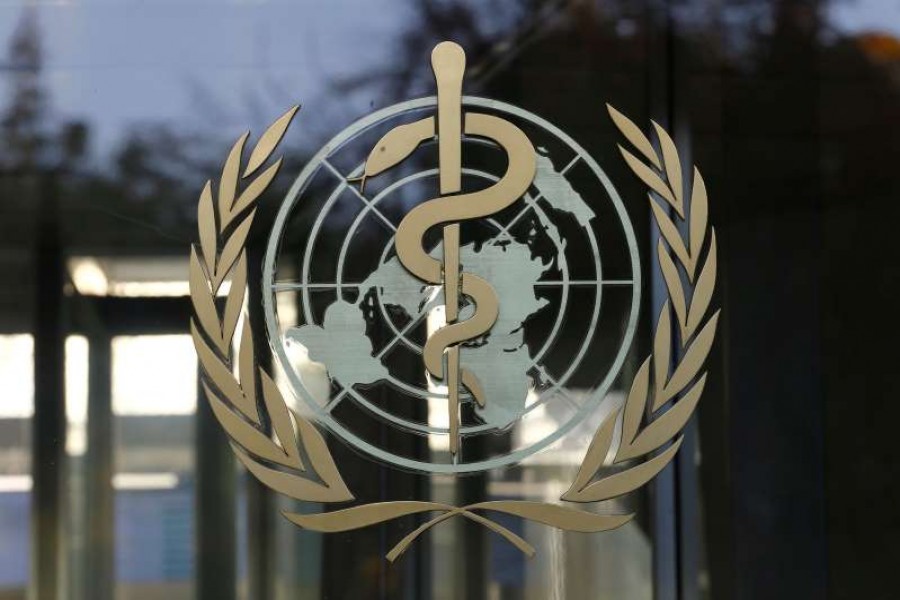India has proposed a nine-point plan for reforms of the World Health Organization (WHO), including changes in mechanisms to monitor health emergencies that can cross borders and giving the head of the UN body greater power to declare an international public health emergency.
The proposals, which have been formally conveyed to UN and WHO authorities, also include changes and improvements in the body’s funding and governance, transparency in use of funds, and a greater role for the body in ensuring fair, affordable and equitable access to Covid-19 vaccines.
The Indian government has repeatedly raised the need to reform WHO at multilateral forums such as the G20 and BRICS this year, and Prime Minister Narendra Modi criticised the body for not reflecting contemporary realities. India’s calls for WHO reforms, especially after the body’s initial handling of the Covid-19 pandemic, have been backed by countries around the world.
The Indian government’s proposals, contained in the document “Approach on WHO reforms”, call for devising “objective criteria with clear parameters” for declaring a “public health emergency of international concern” (PHEIC) such as the Covid-19 pandemic.
The WHO director general currently has to convene a committee of experts, the International Health Regulations (IHR) Emergency Committee, to declare a international emergency. India has proposed the WHO chief should be empowered to declare a PHEIC if there is “broad agreement, though not a consensus” within the emergency committee.
“The emphasis must be on transparency and promptness in the declaration process,” the document stated.
The Indian recommendation is relevant in view of WHO’s regulations which state the emergency committee gives advice on declaration of a PHEIC when there is “inconsistency in the assessment of the event” between the WHO chief and the affected country – something that revelations have pointed to in the case of Covid-19.
The Indian government pointed out that most of the financing for WHO’s programmes comes from extra-budgetary contributions earmarked for specific issues. Since WHO has little flexibility in using these funds, voluntary contributions should be “unearmarked to ensure that the WHO has necessary flexibility for its usage in areas where they are required the most”, it recommended.
WHO’s regular budget should also be increased so that core activities “are financed from it, without putting an overwhelming financial burden on developing countries”, it said.
Noting that member states have little say in selection of WHO’s activities, expenditure and concurrent monitoring, the Indian government called for effective involvement of all countries in budget implementation and spending. “Strong and robust financial accountability frameworks” should be created, a “significant amount of transparency with respect to data reporting and disbursement of funds” should be established, and the efficiency of funding mechanisms such as the WHO Solidarity Response Fund should be strengthened, it said.
With Covid-19 having exposed gaps in implementing the International Health Regulations 2005 (IHR), which defines countries’ rights and obligations in handling health emergencies that can cross borders, India called for strengthening capacities in countries found to be deficient and for enhancing international cooperation.
Calling for a global framework for managing infectious diseases and pandemics, including capacities such as testing and surveillance systems, the document highlighted the “need to establish a system facilitating pan-world surveillance by leveraging innovating ICT tools”.
The Indian government said it is important for member states to have a greater say in the functioning of WHO and pointed out the two policy-making organs –World Health Assembly and Executive Board – are only playing a “peripheral role”. With most of the work in WHO being done by technical committees of independent experts, there is also a need to review the functioning of these panels.
“The pandemic laid bare various gaps in the preparedness of healthcare systems across the globe, which could have been reviewed and strengthened in a timely manner,” the document said.
The Indian government also called for efforts to “ensure fair, affordable and equitable access to all tools for combating [the] Covid-19 pandemic and, therefore, the need to build a framework for their allocation”. WHO’s work in this direction should be supported, and Covid-19 vaccines are a “global public good and TRIPS waiver as proposed by India and South Africa would go a long way in effective international and national response” to the pandemic, it said.
It also pointed out that “as a reflection of vaccine nationalism, some developed countries have been signing bilateral agreements with vaccine manufacturers, leaving very little space for developing countries to get fair, affordable and equitable access” to vaccines.
In May, India was elected to WHO’s Executive Board and will chair the body during 2020-21, putting it in a position to suggest key reforms to the body.


